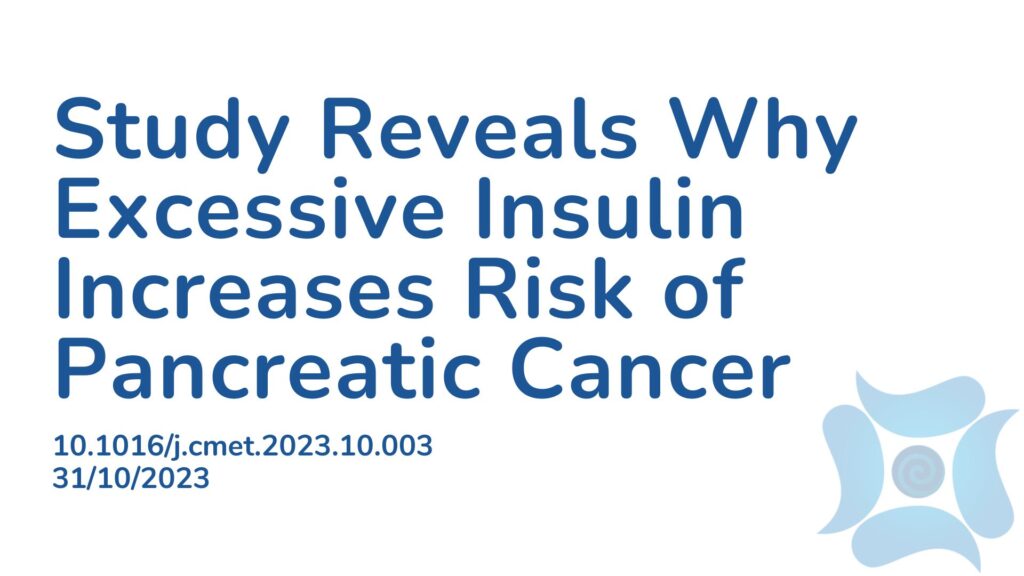Summary:
The increasing incidence of pancreatic cancer is closely linked to high insulin levels. Previous research has showed that reducing insulin production could suppress cancerous lesions, however the exact mechanisms are unclear. This study looked at the relationship between insulin levels and pancreatic cancer and uncovered a mechanism. The authors explained that excessive insulin levels overstimulate pancreatic cells which produce digestive enzymes. This overstimulation causes an inflammatory response which creates pre-cancerous cells. These findings mean that people who have conditions that are characterized by high insulin such as obesity and type 2 diabetes may be at higher risk of pancreatic cancer.
Abstract:
The rising pancreatic cancer incidence due to obesity and type 2 diabetes is closely tied to hyperinsulinemia, an independent cancer risk factor. Previous studies demonstrated reducing insulin production suppressed pancreatic intraepithelial neoplasia (PanIN) pre-cancerous lesions in Kras-mutant mice. However, the pathophysiological and molecular mechanisms remained unknown, and in particular it was unclear whether hyperinsulinemia affected PanIN precursor cells directly or indirectly. Here, we demonstrate that insulin receptors (Insr) in KrasG12D-expressing pancreatic acinar cells are dispensable for glucose homeostasis but necessary for hyperinsulinemia-driven PanIN formation in the context of diet-induced hyperinsulinemia and obesity. Mechanistically, this was attributed to amplified digestive enzyme protein translation, triggering of local inflammation, and PanIN metaplasia in vivo. In vitro, insulin dose-dependently increased acinar-to-ductal metaplasia formation in a trypsin- and Insr-dependent manner. Collectively, our data shed light on the mechanisms connecting obesity-driven hyperinsulinemia and pancreatic cancer development.
Article Publication Date: 31/10/2023
DOI: 10.1016/j.cmet.2023.10.003



